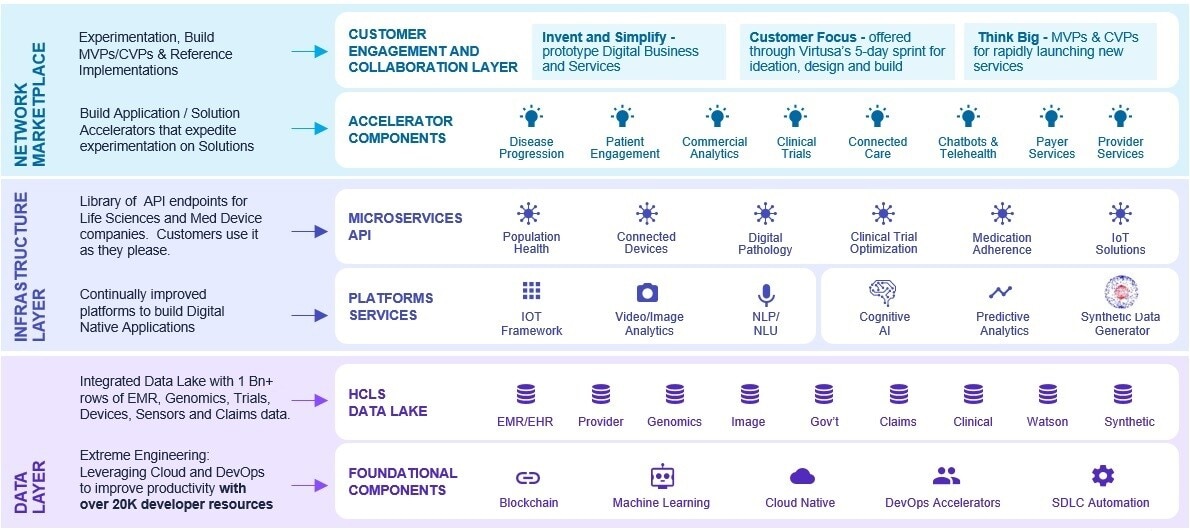It’s no secret the United States healthcare system has its shortcomings, with information residing in hardened and isolated silos. In many scenarios, unencumbered access to healthcare information is rare, hindering providers’ abilities to care for patients without limitations.
This has resulted in a status quo where different system participants conduct transactions at an arm’s length, lacking the shared goals, understanding, and even vocabularies required to deliver consistent patient care and outcomes.
Standardized health IT interoperability and data sharing improve care quality and coordination, reduce costs, and liberate data that can be analyzed by artificial intelligence (AI) and machine learning (ML) algorithms to illuminate problems and resolve existing deficiencies.
Seamless data sharing enables more tailored, personalized treatments for patients, and simultaneously identifies gaps in the health of whole populations who share common disorders, socioeconomic status, geographic location, age, and genomic attributes.
Sharing real clinical data based on current practices aids in the development and application of innovative new therapy options that can be evaluated and purchased using clear outcome measurements.
Data interoperability ultimately empowers the healthcare system to move away from the outdated transaction model of fee-for-services and prescription volume to a common, value-based care model, where patient outcomes determine the ultimate success and accountability of all healthcare participants.
In this post, I will outline Virtusa’s vLife solution that was built using Amazon Elastic Compute Cloud (Amazon EC2), Amazon SageMaker, and Elastic Load Balancing. Virtusa is an AWS Premier Consulting Partner with AWS Competencies in Life Sciences and Data & Analytics, among others.
The Move to Advanced Digital Platform Services
Recent legislative and policy actions from the U.S. government, combined with years of persistent, collaborative development across the industry, are moving the healthcare system to coalesce around advanced digital platform services that will enable standardized health IT interoperability.
These platform services will be designed using agile software development methodologies, built on open APIs, delivered from the public cloud, and deployed with fine-grained security and privacy protection to safeguard personal health information. Foundational technology standards such as HL7 FHIR and SMART, now required as a result of the 21st Century Cures Act and CMS/ ONC Final Rules, are helping to push this movement forward.
By connecting healthcare organizations across the spectrum, these standards empower the delivery of applications that bridge the divide between clinical health information technology (HIT) systems and financial systems while combining existing and new data sources.
This data can be delivered through mobile and web-based applications that interact seamlessly with clinical data, financial operating systems, and new automated workflows.
Efficient and Cost-Effective Healthcare Starts with Interoperability
It’s imperative that key technology suppliers come together to design, develop, and deploy heterogeneous and cross-organizational solutions based on these standards. IT services, software, and public cloud infrastructure boundaries must be deconstructed to support the inevitable convergence of healthcare, life science, and information technology.
Powered by Amazon Web Services (AWS), Virtusa’s vLife platform is designed to serve as an accelerator for highly advanced AI and ML transformative capabilities. This solution leverages several AWS services, such as Amazon EC2 to house API applications containerized on a docker environment, Amazon SageMaker as an environment to train ML models in, and Elastic Load Balancing to effectively distribute web traffic.
vLife has also joined forces with InterSystems, an AWS Advanced Technology Partner and the most widely used data and interoperability platform for electronic health information, to leverage their integration capabilities and improve user access to data and analytics.
From early stage research to patient engagement, vLife can be rapidly configured to support specific healthcare and life science use cases as the industry continues to shift towards a collaborative, value-based care delivery model.
The end goal for vLife is to enable customers to quickly and accurately identify, assess, and deploy digital solutions to address challenges through a well-architected platform that supports a variety of technology components—from base technology infrastructure to user experience.
Solution Overview
vLife provides a secure platform that supports a variety of use cases. By offering services across abstracted and virtualized platform layers, developers can more easily deploy solutions that meet the unique requirements of their specific situation.
Testing an AI model, for example, using a different technology infrastructure toolset, is as easy a configuration click.
Other vLife services include:
- Network Marketplace Layer: Virtusa is able to provide pre-designed AI algorithms based on required functionality, therapeutic area, and business focus. This enables teams to easily extract data from unstructured sources such as clinical trial documents through natural language processing (NLP).
- Technology Infrastructure Layer: With vLife being architected in a secure public cloud tenant, many different versions of the tool can be used based on a given product. For example, vLife’s technology stack enables users to benefit from the solution regardless of the industry standard the software or API is built upon.
- Data Layer: vLife provides an abundance of variety and volume of data sets that can mimic or mirror the statistical attributes of real patient data, allowing for quick testing. InterSystems provides the interoperability between the different data sets.

Figure 1 – Virtusa’s vLife platform overview.
The journey to digital transformation in healthcare can be overwhelming, but vLife’s platform approach enables developers to create and test capabilities that may not be readily available or easily developed as off-the-shelf solution components within their organizations.
With the native interoperability and integration foundation of the InterSystems IRIS for Health data platform, Virtusa customers can easily and effectively access patient data from electronic medical record (EMR) systems and other clinical applications. This enables and supports a broad range of analytics use cases for healthcare payers, life sciences, and medical technology companies to digitally transform.
vLife in Action
One of Virtusa’s customers—a care management application—needed to provide a consolidated continuum of care platform for patients undergoing knee replacement surgery.
Loosening is one of the most serious complications following knee replacement surgery that can cause bone fractures, instability, and falls. Some complications such as loosening could require revision surgery to correct, so post-operative follow up is critical.
The customer was faced with significant challenges around such surgeries with things like patient education, care coordination, tracking patient progress, and medication reminders. Using vLife, Virtusa developed a scalable and flexible digital platform in three months to address these challenges and support all orthopedic surgeries through this new care management platform.
A patient-centric categorization was developed and powered by AI models to enable quicker decision making for patient risk stratification, targeted content for patient education, and medication adherence. Onboarding other types of orthopedic replacement surgeries such as hips and joints are now in progress due to the success of the overall framework.
Conclusion
The vLife platform built by Virtusa, InterSystems, and AWS can help move the healthcare industry towards a new integrated information-sharing mode.
vLife bends the curve on unsustainable cost growth, eliminates unnecessary or unproven treatment and procedures, and can ultimately help transform the overall healthcare system instead of adding more automation to existing inefficient processes.
Check out AWS Marketplace to learn more about the InterSystems IRIS for Health data platform.
Learn more about the Virtusa’s vLife platform.
Originally published on AWS Partner Network (APN) Blog on October 29,2020.
By Anthony Lange, Sr. Vice President of Healthcare and Life Sciences at Virtusa































